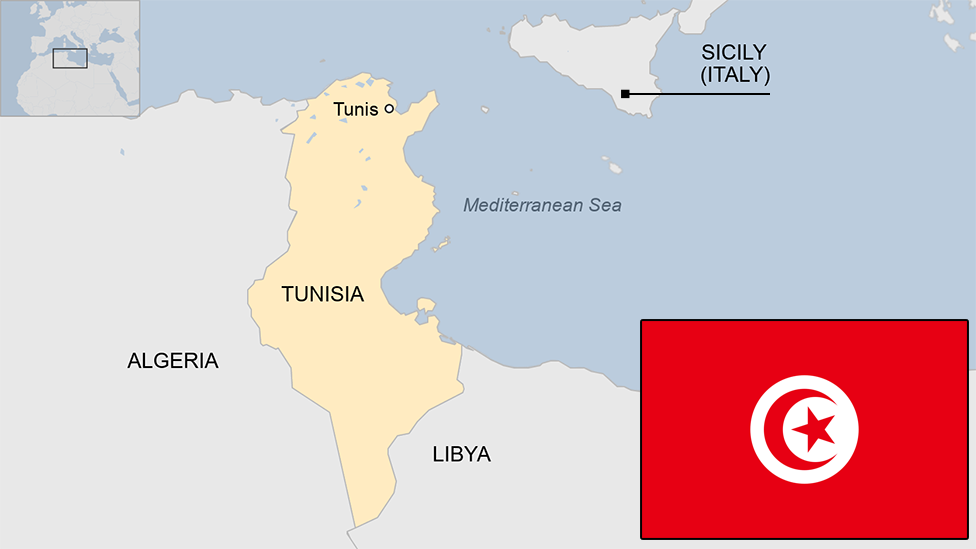Police use tear gas on protesters in Tunisia, reports say
- Published
The government is seeking to calm days of unrest
Police in Tunisia are reported to have fired tear gas to disperse a crowd of youths protesting against new austerity measures.
A Reuters witness said young people aged around 20 were throwing stones at police vehicles and setting fire to tyres.
The clash happened in Ettadamen, a poor district of the capital, Tunis.
President Beji Caid Essebsi had given a speech there earlier on Sunday promising to increase youth employment.
Joblessness among the young is considered a key indicator of a country's economic prospects, and Tunisia's stands at around 35%.
The president's comments came as Tunisians marked the seventh anniversary of the country's revolution. The 2011 uprising that launched the Arab Spring led to the toppling of President Zine al-Abidine Ben Ali after 23 years.
Ben Ali, now in exile in Saudi Arabia, was convicted in absentia of embezzlement and misuse of public funds, and sentenced to 35 years' imprisonment.
Several hundred people joined rallies in Tunis on Sunday at the urging of political parties and the UGTT, a prominent trade union.
Why are there protests now?
Protests are a common feature each January in Tunisia, as people commemorate the 2011 rallies.
A increase in value-added tax and social security contributions brought in at the start of January has led to heightened emotions this year.
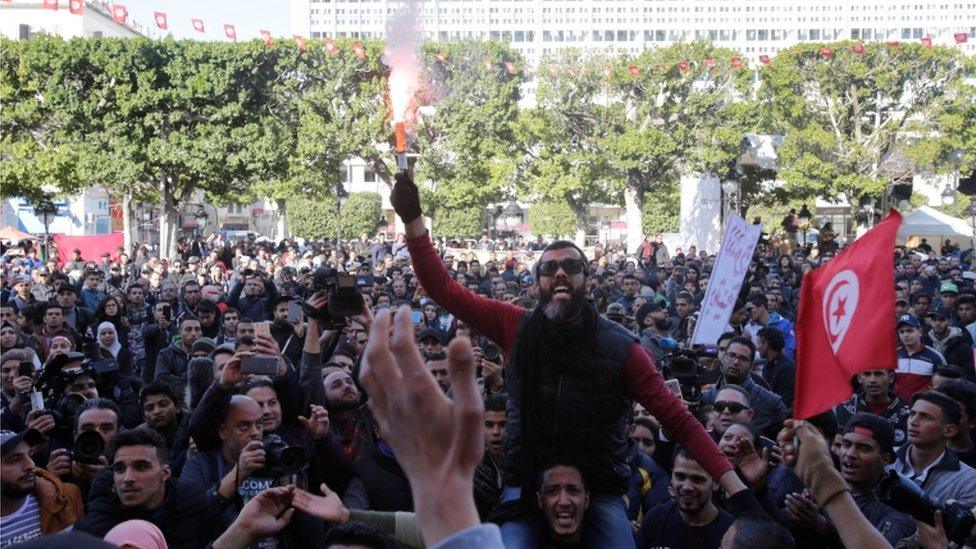
Protesters in Tunis mark the seventh anniversary of the toppling of President Zine El-Abidine Ben Ali
Protesters are calling for a review of the 2018 budget, and a push to combat corruption.
Tunisia is the only country to dislodge its long-standing leader in the Arab Spring without descending into serious violence. But nine successive governments have failed to revive its flagging economy.
Both peaceful protests and nocturnal unrest have been seen across the country over the past week.
Violence at anti-austerity protests in Tunisia
More than 800 people have been arrested, according to the interior ministry, which accuses them of theft, vandalism and violence.
What is happening on the streets?
In 2011 the slogan "Work, Freedom, Dignity" rang out in the streets, and protesters have revived it in recent days.
On Sunday, many gathered on Habib Bourguiba Avenue, a major site in the 2011 demonstrations. Hundreds of riot police were deployed there.
An interior ministry spokesman said on Saturday that around 97 members of the security forces and civil protection units had been injured during the protests.
The number of protesters injured was not given.
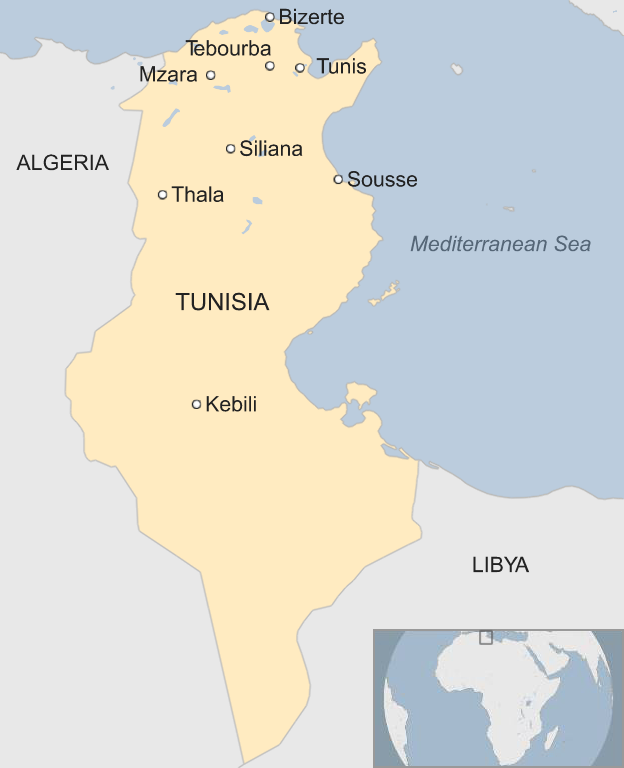
There have been protests in all of these towns
How has the government responded?
The government has tried to quell protests by unveiling a welfare package that includes better healthcare and an increase in aid for the needy.
Officials say the 70m dinar ($28.5m) plan will help more than 120,000 Tunisians. But it's unclear how it will be funded.
The government's tax and price increases were imposed as it seeks to placate international donors by reducing its budget deficit. The International Monetary Fund (IMF) gave Tunisia a $2.9bn (£2.2bn) loan on the promise it would enact financial reforms.
The tourism sector, once a vital source of revenue, was damaged in 2015 by a wave of jihadist attacks and is yet to bounce back.
As 2018 begins, inflation is at a three-and-a-half-year high and food prices are rising by 10% annually. Taxes on items like mobile phones, cars and the internet have also increased. Ordinary people are suffering financially.
The BBC's Mark Lowen, in Tunis, says the president's visit to the flashpoint district of Ettadamen was a bid to quell further unrest.
He says the protesters are not only frustrated about the immediate tax increases, but more deeply by a loss of hope.
- Published14 January 2018
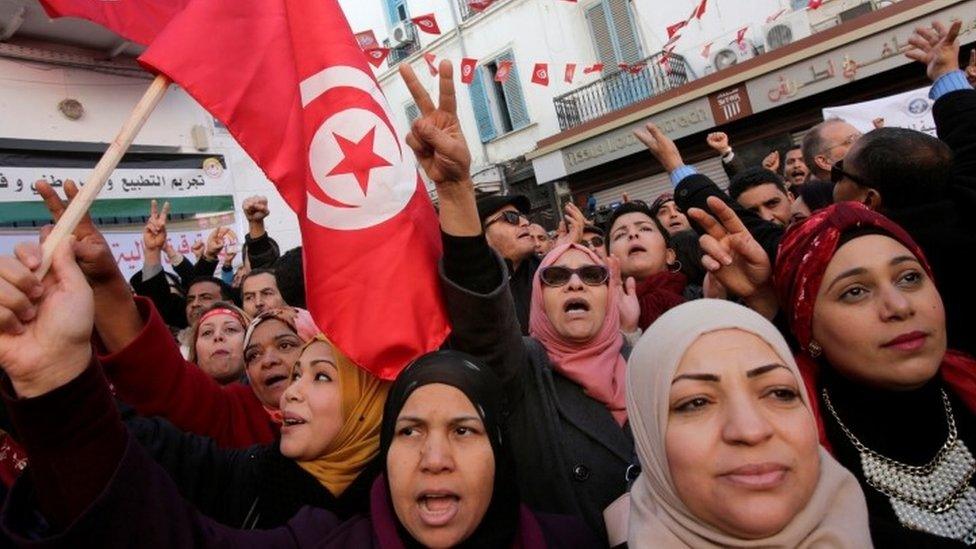
- Published11 January 2018
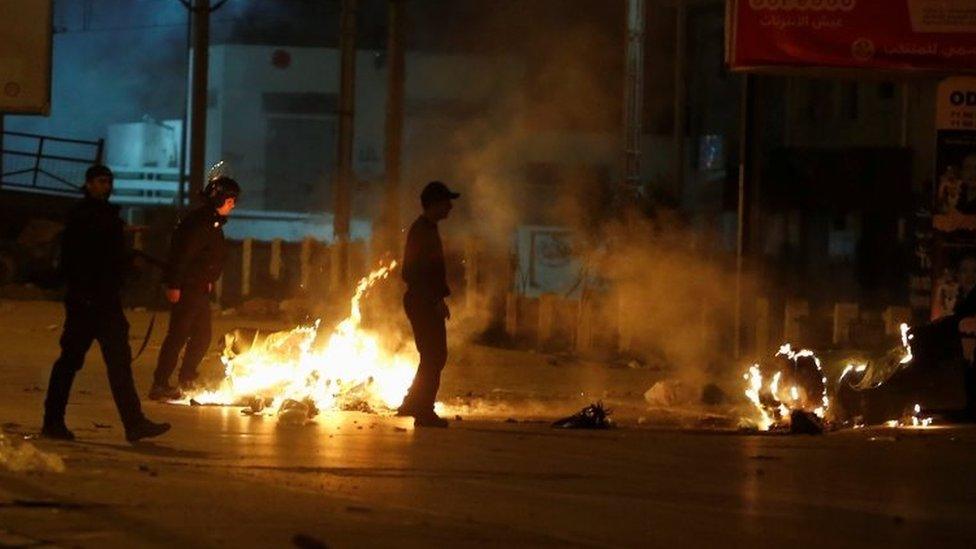
- Published9 October 2024
